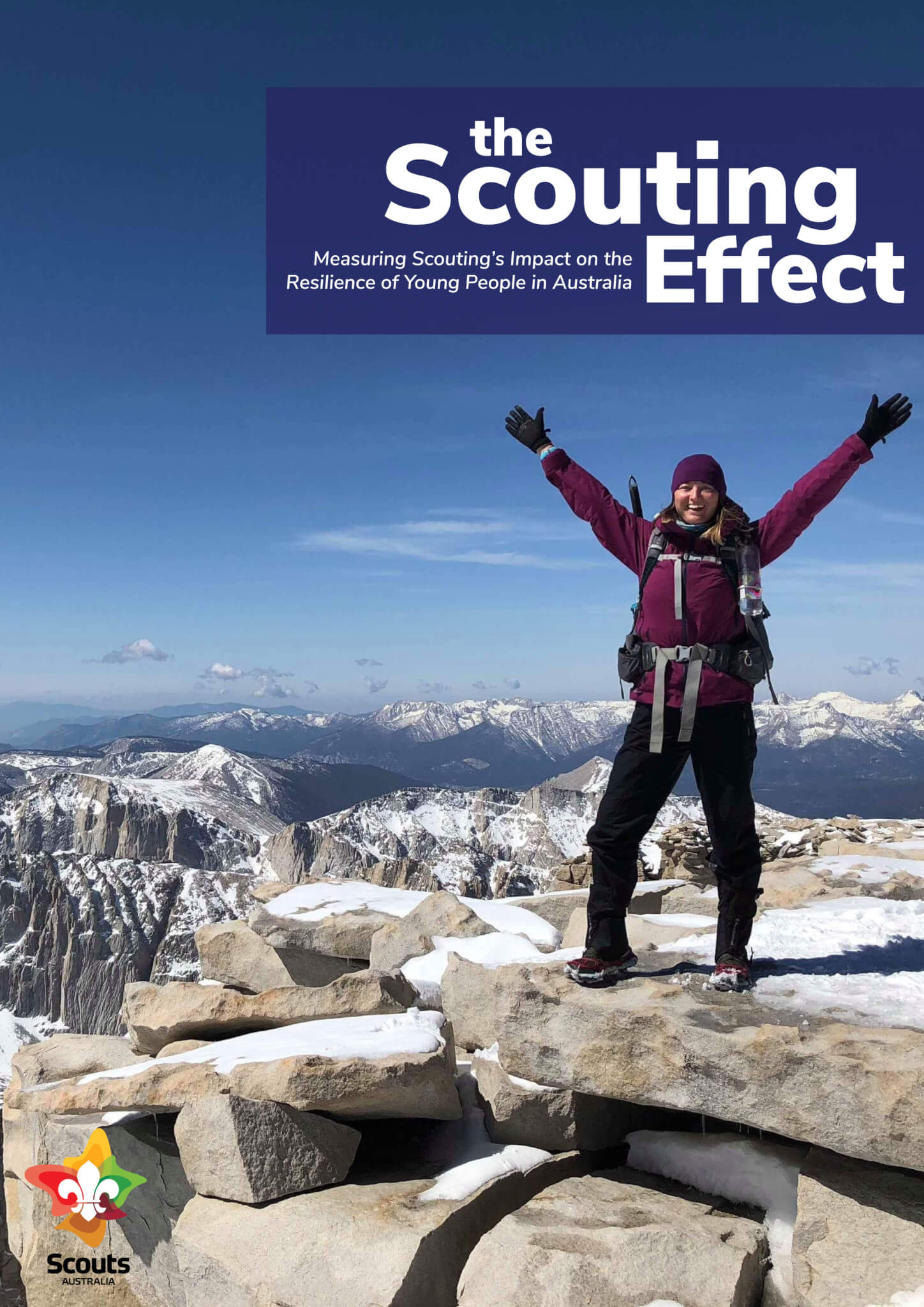The Scouting Effect
It’s Official! Scouting Builds Resilience for Life.
![]()
Resilience enables people to thrive and take on all that life has to offer, including the inevitable challenges. It’s about knowing our strengths and calling on them when needed.
At Scouts, we empower young people to make decisions, take the lead and learn by doing. We give them a safe space where they can work with others to plan and embark on their own adventures, indoors and out. By building resilience in young people, we are empowering them to be able to learn from their mistakes and to understand that failing is okay – it’s an integral part of the learning journey.
In 2019, Scouts Australia partnered with Resilient Youth Australia to explore the impact of Scouting on young Australians. Youth members across the country participated in the Resilience Survey, and after months of analysis, the results are in, and they show what we Scouts, parents and Leaders see every day as our youth members grow towards their potential.
It’s official – Scouting and resilience go hand in hand; and we have the data to prove it.
What is the Resilience Survey?
The Resilience Survey, developed in partnership with the UniSA Justice and Society at the University of South Australia benchmarked the responses of young people aged 8-18 who attend Scouts with those around the country who do not, pointing to the positive impact of Scouting.
It asked Scouts 75 multiple choice questions on a range of areas including their strengths, life satisfaction, hopefulness, coping style, mental health and risk and protective behaviours.
What Were the Findings?
From being able to find ways to solve a problem to being more likely to forgive themselves if they make a mistake, the Resilience Survey found Scouts demonstrate a far wider range of resilient behaviours than their peers.
In fact, the findings show that young people participating in Scouts report to demonstrate higher levels of resilience when compared to their non-Scouting peers, and this is consistent across a number of elements of resilience, including Positive Relationships, Social Skills, Understanding Self, Safe, Healthy Mind and Body, Positive Learners, Positive Identity, Positive Values and Positive Contribution.
And that’s not all – the Resilience Survey also revealed that Scouts report to have an overall better life satisfaction than their peers, and that the longer they stay in Scouts the more resilient they are likely to be.
While these findings aren’t exactly new, through the Resilience Survey we now have concrete proof that participating in Scouting gives young Australians the unique tools to thrive and take on all that life has to offer.

